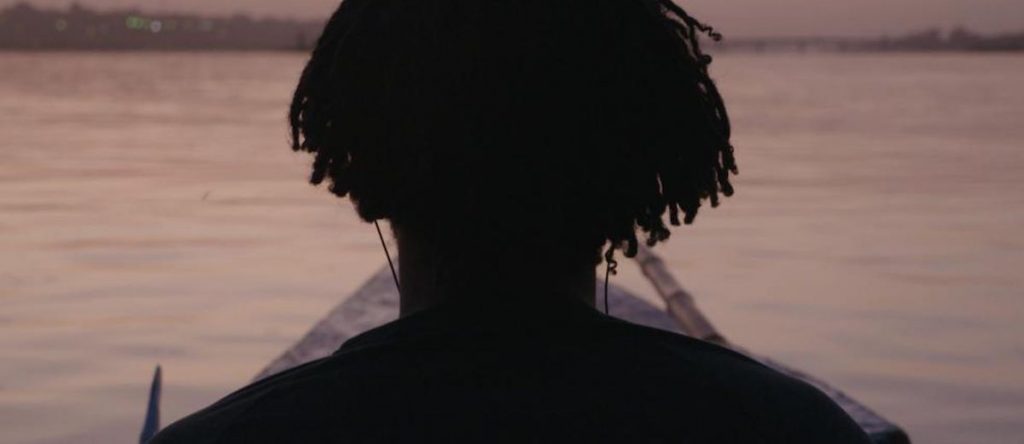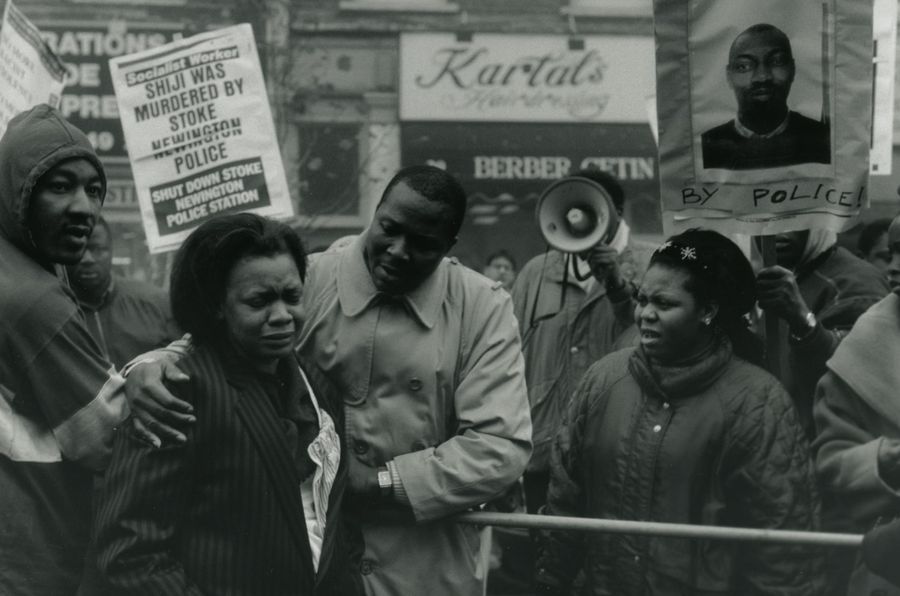Day eight finds two documentaries made in 2020 exploring the spectre of colonialism and the far-reaching consequences still felt in the 21st century, Rob Lemkin’s African Apocalypse and Ken Fero’s Ultraviolence.
African Apocalypse

Joseph Conrad’s hugely influential book Heart of Darkness examines the horrific violence inflicted on the country and people of the Congo by its Belgian colonial invaders. The story follows company man Marlow who must journey into the jungle to find and retrieve Mr. Kurtz, an ivory-trader who had gone mad with power. Published in 1899 it is undoubtedly a work of fiction, albeit one drawn from actual events. However, Rob Lemkin’s fascinating documentary reveals that in the same year a French officer named Paul Voulet became a real-life Kurtz, when he cut a swathe through Niger on a campaign to “pacify” the local villages and secure territory for his homeland.
The film follows actor and activist Femi Nylander, born in England but of Nigerian heritage, who feels torn between two worlds. The colour of his skin always made him feel like an outsider, yet as a British citizen he feels guilty for being a beneficiary of colonialism. When he first read Heart of Darkness he naively thought Kurtz was an aberration, but as he learned more about colonialism in Africa he became more aware that people like Kurtz were the norm. Uncovering the story about Captain Paul Voulet, he decides to travel to his ancestral home of Niger in pursuit of Voulet and the legacy of his genocidal war against its people.
Lemkin and Nylander have created a captivating documentary that takes an up close and personal view of the utter devastation caused by the violence of colonialism. Even though Voulet’s organised mass murders occurred over one hundred years ago, his presence is still felt in all the villages Nylander visits. Not only was the main road that connects the villages created by Voulet but the stories of his atrocities still live on in the hearts and minds of its citizens. The generational trauma can be felt so deeply, not just within the families whose relatives were killed, but in the very landscape itself, in a country deemed “the least developed in the world.”
There is a moment in the documentary when Nylander’s guides accuse him of not being moved by the tales of violence being recounted by the villagers because his face remains too passive. He assures them that he is horrified and devastated on the inside, but that he would try to be more open going forward. This sums up a fundamental shortcoming in the film’s presentation. Despite the deeply personal stories and the connection between them and Nylander, the film feels one step removed, unable to draw the audience further into the emotional stakes of this moving and harrowing story.
It is a fascinating story nonetheless, and its parallels with Conrad’s Heart of Darkness are astonishing. Nylander even uncovers that another French officer, Colonel Klobb, was sent to rein Voulet in, much like Marlow was sent after Kurtz. This development further suggests that the story created by Conrad was not an aberration, as Nylander originally thought, but very much the norm, a policy of genocide perpetrated throughout Africa and across the globe by white colonial forces. This is a policy that echoes across time and can still be felt by the descendants of its victims, through a system that still benefits from the horrors perpetuated in its name.
Director: Rob Lemkin
Cast: Femi Nylander, Amina Weira, Boubacar Assan Midal
Writers: Rob Lemkin, Matt McConaghy, Femi Nylander
Ultraviolence

This same legacy of violence begat by the policies of colonialism can be seen and felt in Ken Fero’s raw and mournful documentary Ultraviolence. The film focuses on the history of violence perpetrated on Black people by the police in Britain. Offering a select group of cases of deaths in custody from the mid-2000s, Fero makes the case that a combination of racist police tactics and an indifferent justice system results in the continuing victimisation of Black communities across the United Kingdom.
Using archival news footage and interviews with family members of the victims, Fero levels a litany of charges against the police and the state in painful and painstaking detail. He also utilises the security camera footage of Black men being tortured and neglected by police, with one particularly shocking scene where a young man is left to die on the floor while officers ignore him. This raw, unfiltered approach is monumentally disturbing and, combined with the reactions of the victim’s families, makes the human cost of the systemic injustice all too real.
Fero follows the families as they seek justice first through the criminal courts and then through an independent police inquiry panel and they never receive straight forward answers. None of the police are ever convicted (if at all charged) and it becomes crystal clear that the system is designed to marginalise Black communities and the police turn a blind eye to the actions of their own officers, both through a culture of thuggery and racism and an inability to face the truth of its own fallibility. This is a truth society can’t bear to face on the whole, because if police officers can wantonly deal out their own form of justice on the streets, then what does law and order even mean?
Ultraviolence is an important film that endeavours to break the cycle of violence by dragging some of society’s darkest truths into the light. Really it should be shown in schools to make young people aware of these injustices from an early age, but some of the grisly real-life footage may not make this possible. The documentary’s style can also be a little alienating at times, with a lot of text being flashed on to the screen which sometimes interrupts our emotional reaction to what is happening on the screen, but the subject matter is so vital in its call for social progress that this documentary must be seen by as many people as possible.
Director: Ken Fero
Writer: Teriq Mehmood



